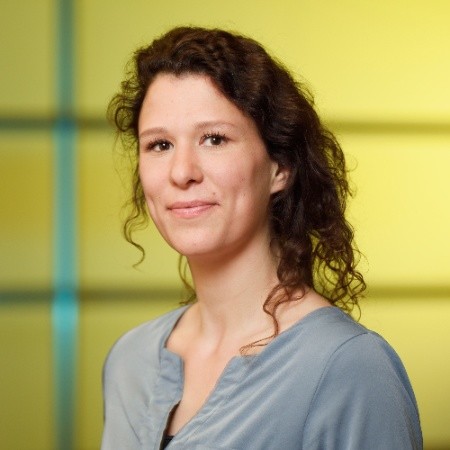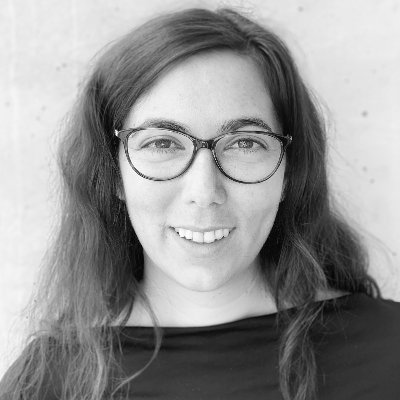
Luke Haliburton is a Ph.D. candidate in the Human-Centered Ubiquitous Computing group at LMU Munich. His Ph.D. research is primarily focused on developing technologies for healthy workplaces, and he also conducts research on mobile interaction, ubiquitous computing, machine learning ethics, and mindful technology use. As a former biomedical engineer, startup founder, and current startup mentor, Luke actively works towards developing a closer relationship between research and industry, aiming for more effective transitions between the lab and practice.
Ida Damen holds a Ph.D. in Industrial Design from Eindhoven University of Technology, where her dissertation focused on the role of technology in fostering active and healthy workplaces. Currently a researcher and lecturer at Fontys University of Applied Sciences, Ida is also affiliated with the Workplace Vitality Hub, a living lab devoted to workplace wellbeing. Her work bridges the gap between academic research and practical application, involving collaborations with interdisciplinary teams of psychologists, ergonomists, and technology experts. With an emphasis on design-oriented research, Ida has made significant contributions to the creation of innovative solutions aimed at seamlessly incorporating physical activity into office tasks.


Carine Lallemand is Assistant Professor in Experience Design at the University of Luxembourg and the Industrial Design Department at the Eindhoven University of Technology (Netherlands). She has a background in Psychology and Human-Computer Interaction. Her research activities are mainly centered on designerly ways to trigger behavior change for healthier lifestyles, with a particular focus on healthy office work and SportsHCI. As the leader of the TU/e Vitality squad, Carine has supervised over 50 Bachelor and Master students projects and published more than 20 peer-reviewed publications on healthy workplaces. Carine is the author of a textbook on UX methods, currently used in more than 100 curriculums in 6 French-speaking countries. She is also a passionate advocate for academia-industry relationships.
Jasmin Niess is an Associate Professor at the University of Oslo, Norway. She is co-affiliated with the Leibniz Science Campus for Digital Public Health and actively engaged in multiple research projects focused on digital health interventions. Jasmin received her PhD in Psychology at LMU Munich. She is an expert in developing innovative interaction techniques, studying the influence of psychological and experiential aspects in the realm of health and well-being technologies, and advocating for inclusive design principles within the digital health landscape. She places high importance on academic service and held multiple roles in the SIGCHI community (e.g. CHI 2024 courses chair). Due to her experience in multiple digital health-related projects, Jasmin has extensive experience in organizing workshops and other academic events engaging stakeholders from academia, industry and the health sector.


Aino Athinen received her Ph.D. in Human-Technology Interaction from Tampere University of Technology, Finland. Her research focused on the design of motivational applications to increase physical activity of people. Her post-doctoral research concerned the design of physically active ways of work, including for example the development of the Brainwolk walking meeting concept for contemporary knowledge work. She works currently as a University Lecturer at Tampere University (TAU), unit of Computing Sciences. In 2022, she received an excellent teaching award at TAU for designing and implementation of Brainwolks for students’ supervision. She has also established a co-learning space Robostudio at TAU, and there, her team is making experimentations about how to integrate robots to increase people’s physical activity and wellness in several contexts.
Paweł W. Woźniak is an associate professor at Interaction design, Chalmers. Paweł’s key interests lie in the intersection of technologies, physical activity and wellbeing. His focus is on understanding the everyday experiences of physical activity and designing better technologies that support wellbeing. Paweł loves to build stuff and he builds devices for sports particularly often. He has held multiple roles in the SIGCHI community (general chair of TEI’23, ISS’21, SIGCHI Poland chair). Paweł brings systems and personal informatics expertise to the workshop as well as track record of organizing academic events.
